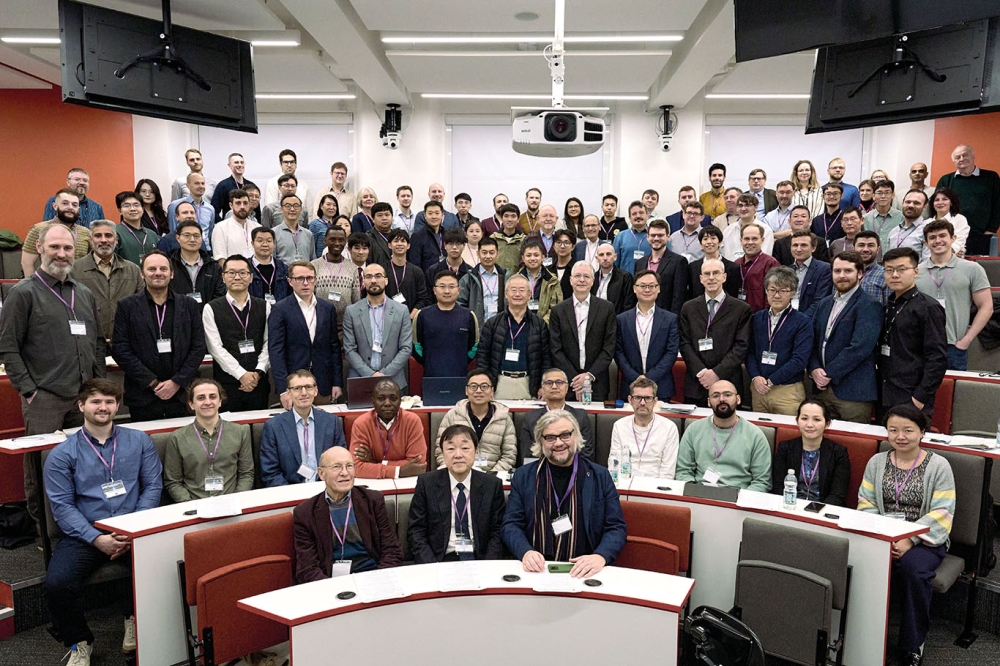Aixtron sails through credit jitters
You don t need to be a financial wizard to know what kind of year it has been for bankers. 12 months ago who had even heard of the term "credit crunch"? But through the end of 2007 it had become the headline of choice in newspaper offices around the world.
![]()
For the banking sector it has been a nightmare. With the finger of blame pointing squarely at what now looks like borderline insane institutional lending to sub-prime customers clearly out of their financial depth, the fall-out has so far included some huge write-downs, the implosion of US bank Bear Stearns and a hell of a lot of bankers looking for a new job.
But the effects on the wider economy, and on those sectors that are served directly by compound semiconductor components, are yet to really play out. And while a few CEOs from the industry brought up the subject of an impending slowdown in their recent quarterly financial results, none of them spoke of any direct impact on their sales just yet.
Worries of a slowdown may have weighed down many stock prices, although one key company bucking that trend for the second year running is German equipment vendor Aixtron. The firm, which holds the lead in MOCVD reactor sales ahead of US rival Veeco Instruments, enjoyed another quarter of "exceptional" order intake in the three months up to March 31, as LED manufacturers continued to invest in equipment needed to supply chips to be used in display backlight applications.
"As expected, we have seen some evidence of softening in inquiry levels, which leads us to believe that we are at the apex of the current demand cycle," is how Aixtron s CEO Paul Hyland described the picture. He says that, even if there is a slowdown in sales of MOCVD kit, he does not expect it to last long.
With a net profit of €24.5 million ($37.8 million) in its back-pocket from the first three months of the year, and a huge sales backlog of €157 million thanks to several quarters of busy order activity, Aixtron s share price has held up very nicely at a time when the vast majority have headed in the opposite direction.
Between May 2, 2007, and May 9, 2008, shares in Aixtron rose by just over 50%, putting the company at the top of our leaderboard – even taking into account the sharp drop after the latest results that suggested investors were wary about Hyland s assurance of a "soft landing". Rival Veeco, which is exposed to a wider set of markets than Aixtron, was pegged back on weak performance in sectors outside compound semiconductors. Despite that, its near-flat stock performance over the past year made the company a better investment than the Nasdaq composite index, which dropped by just over 3% at the same time.
Herd mentality
With the usual herd mentality, investors found themselves a new favorite over the past year – alternative energy companies and "green" technologies. High-brightness LEDs certainly fall into the latter category, and chip maker Cree has ascended our leaderboard rapidly as if to demonstrate that. The company s stock grew 30% in the past year, enduring a series of sharp peaks and troughs prior to a 15% plunge after its latest results were announced.
Investors appeared worried by Cree s diminishing profitability, a sharp increase in LED inventory levels and what was perceived as a weak outlook for the next quarter. However, a closer look at the company s results shows that the lower profit compared with the same period last year was largely due to tax benefits registered in 2007. Cree certainly faces challenges as it strives to become known as a lighting company (rather than a humble semiconductor manufacturer), and the acquisition of LED Lighting Fixtures has also hit its overall profit margin slightly.
Significantly, perhaps, Cree s sales of packaged LEDs exceeded those of its chips for the very first time in the latest quarter. But although LEDs are now starting to find applications in general lighting, it will be many years before Cree can claim to have "obsoleted the light bulb".
One of the more immediate challenges for Cree is on the patent litigation front, with cases involving BridgeLux, Honeywell and the litigious academic Gertrude Neumark Rothschild all in the pipeline.































